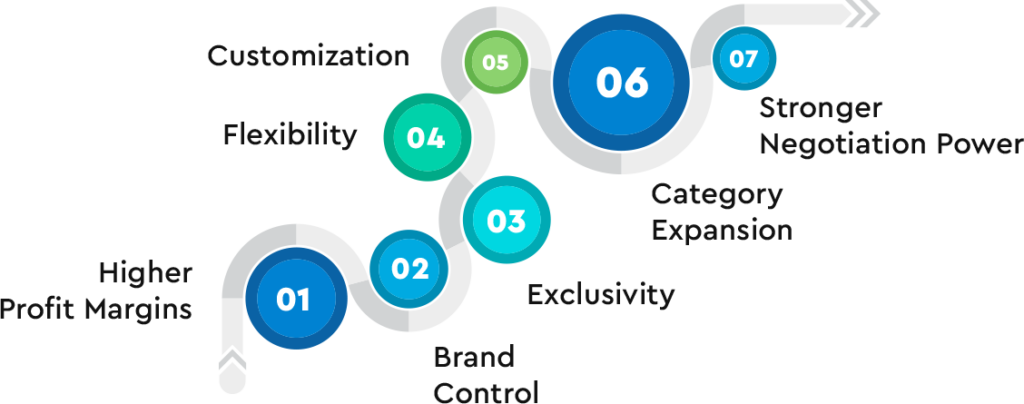Private label refers to a branding strategy in which a retailer or company sells products that are manufactured by a third party but marketed and sold under the retailer's own brand name or label. In other words, the retailer creates its own brand for a particular product or product line, even though they do not manufacture the product themselves.
The retailer or company selects a product category or specific products they want to sell under their brand.
They then find a manufacturer, often referred to as a private label manufacturer or white-label manufacturer, to produce the chosen products. These manufacturers may already have generic versions of the products which can be customized to meet the retailer's specifications.
The Brand Owner designs and creates packaging, labels, and branding materials that feature their own brand name, logo, and design. This branding sets the private label product apart from generic or competing brands.
The private label products are distributed and sold in the retailer's stores, online, or through other distribution channels. They are marketed as exclusive products under the Brand owner’s brand.
Retailers have greater control over product quality, pricing, and branding compared to selling products from other brands.
Private label products often have higher profit margins because the retailer can negotiate favorable manufacturing and pricing terms.
Private label products can provide a competitive edge by offering unique or differentiated products that customers can only find at that retailer.
Successful private label brands can build customer loyalty and trust, as customers associate the quality of the products with the retailer's brand.


Discover a world of vibrant possibilities with our high quality color cosmetic products. As a leading manufacturer, we're committed to bringing your beauty vision to life.
Subscribe us & receive our office & update in your inbox direct
Subscribe us & receive our office & update in your inbox directly

© Copyright Powered by Sunshine Industries